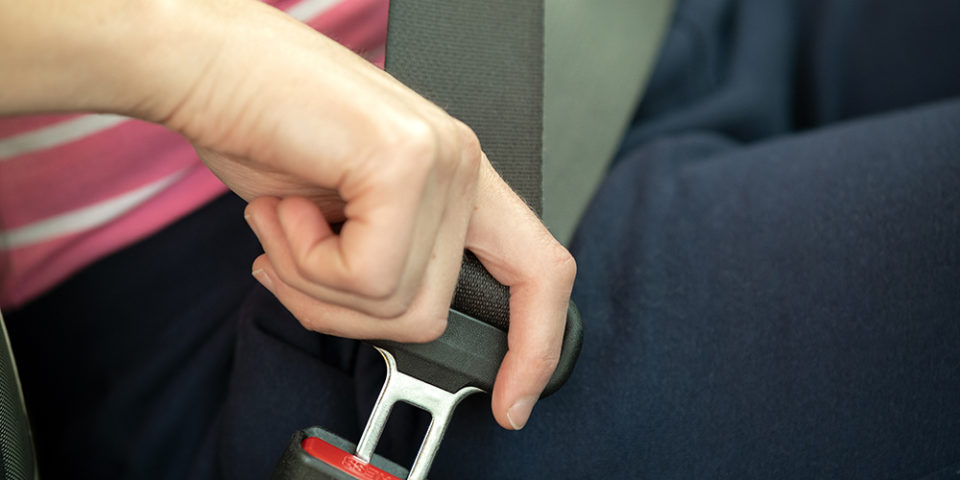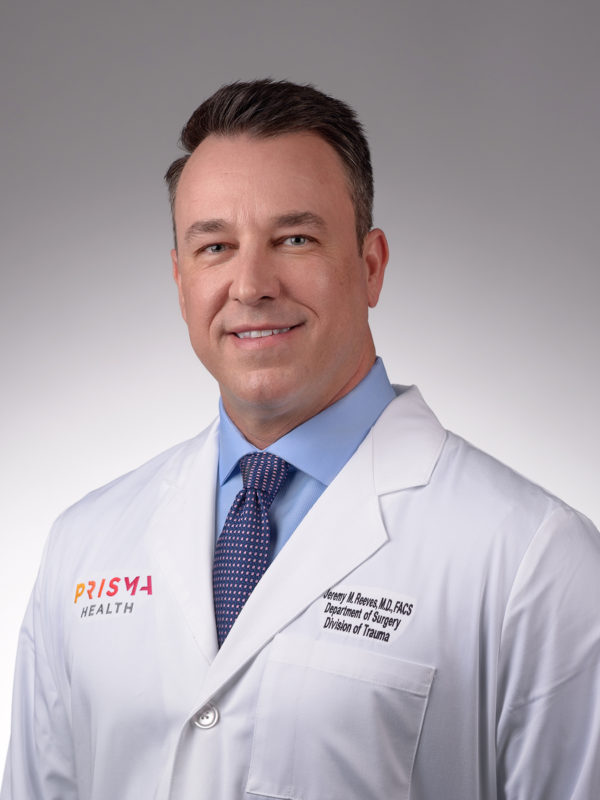13 simple tips to prevent common injuries
Injuries are one of the leading causes of death for people below the age of 44. While many of these injuries won’t require significant medical treatment, some could lead to frantic emergency room visits. The best way to avoid a trip to the ER is to prevent common injuries before they happen. Trauma surgeon Jeremy Reeves, MD, offered simple tips to prevent common injuries in the top three categories he sees during his workday: falls, motor vehicle crashes and gunshot wounds.
Preventing falls is essential, especially for the elderly
“Falls are the leading cause of injuries for adults over the age of 65,” said Dr. Reeves. “But falls can pose serious risks for individuals of any age.” Dr. Reeves offered a few ideas on how to prevent injuries caused by falls before they happen.
- Talk to your doctor. Certain medications may increase the risks of falls or complications that might be caused by them. Your doctor can work with you to evaluate medications and your overall health to give you a better idea of your personal risk.
- Stay safe at home. Keep your home well-lit and use non-slip mats in the bathtub, shower and kitchen. Items you use regularly should be kept within easy reach, to minimize the need to use a stepstool or ladder. Ensure stairs have solid, reliable railings.
- Perform strength and balance exercises. Improving balance and overall muscle strength can not only lessen the risk of falls, but also help you recover more quickly if you do fall. Strength and balance training can often be done easily right at home.
- Don’t skip your yearly eye appointment! Make sure your prescription is up to date. Annual eye exams not only help keep your vision strong, but an eye doctor may also catch certain health issues that might otherwise go unnoticed.
Stay safe behind the wheel
“Motor vehicle crashes kill more than a hundred Americans every day,” said Dr. Reeves. “They’re one of the most common reasons that someone might end up in the emergency room. Sometimes, those severe injuries might have been prevented with some simple safety checks.”
When it comes to tips to prevent common injuries while driving or riding as a passenger in a car, Dr. Reeves suggested the following:
- Wear your seatbelt every single time. One of the easiest and most effective ways to reduce your risk of injury after a car accident is simply to buckle up! Wear your seatbelt every single time, and don’t drive anywhere unless every single person in your car is buckled up, too.
- Don’t drive distracted. Sending a quick text, looking at the GPS or chowing down on a burger while on the road may seem like no big deal, but distracted driving puts every person in a car – and others on the road alongside them – in danger.
- Ensure your children are in age-appropriate seats. Children should be in rear-facing car seats until at least age two, and children two and up should sit in the backseat and use either forward-facing car seats or booster seats until they are age 8 or an adult seat belt fits them correctly.
- Don’t drive under the influence. Driving while under the influence of alcohol, drugs or any other mind-altering substance is never safe and significantly increases your risk of becoming involved in a potentially serious car wreck.
Firearm safety is the most important part of gun ownership
“Firearms are currently the number one cause of death for children and teens between the ages of one and 19 years old,” said Dr. Reeves. “Many child deaths caused by firearms could be prevented with better firearm safety practiced within the home.”
- Keep your guns secure. All of them. Use a gun safe or lockbox to keep your firearms secure when not in use. Gun locks are also available to ensure a firearm is not accidentally fired.
- Assume your child knows every hiding spot. Using a ‘hiding spot’ such as a closet or under the bed is not secure firearm storage. Severe injury or death could occur as a result of a child finding a ‘hidden’ gun.
- Be a firearm safety role model for your loved ones. Ensure children in the home not only learn the correct way to handle firearms, but that they see you follow those rules as well. Our firearm safety tips for parents can help adults model responsible gun ownership.
- Ask other adults about guns in the home. While it can seem like an awkward conversation, asking about what guns might be in the home of a friend before you or your child visits could save lives. Ask how the guns are stored, and ensure they are not where a child could get ahold of one before you enter or allow a child to enter the home.
- Guns have an unfortunate role in suicide. According to the American Association of Suicide Prevention, over half of all suicide deaths in the USA occur with a firearm. Recognize the warning signs of suicide.
For more information about safety and tips to prevent common injuries, you can find safety awareness information on animal bites, poisonings, and more right here.
Find the care you need, close to home
Our primary care physicians provide well visits and everyday care when you need it with compassion and expertise.
Find Primary Care Near You

